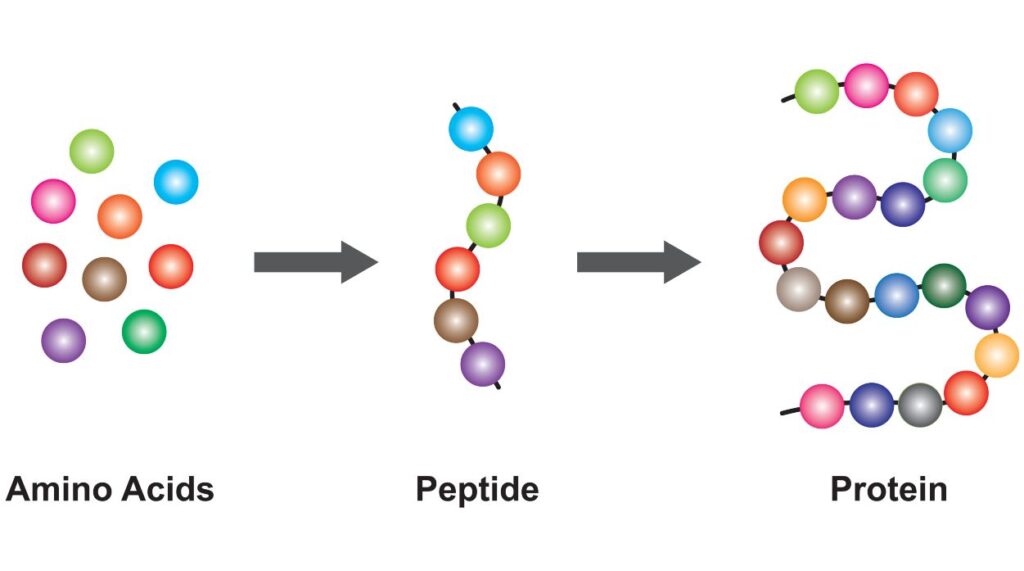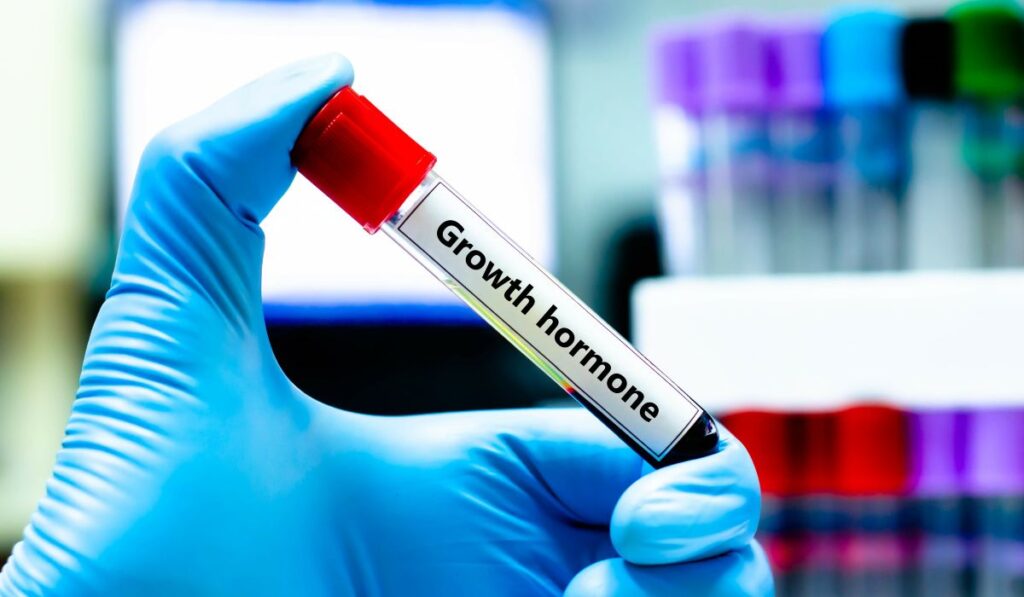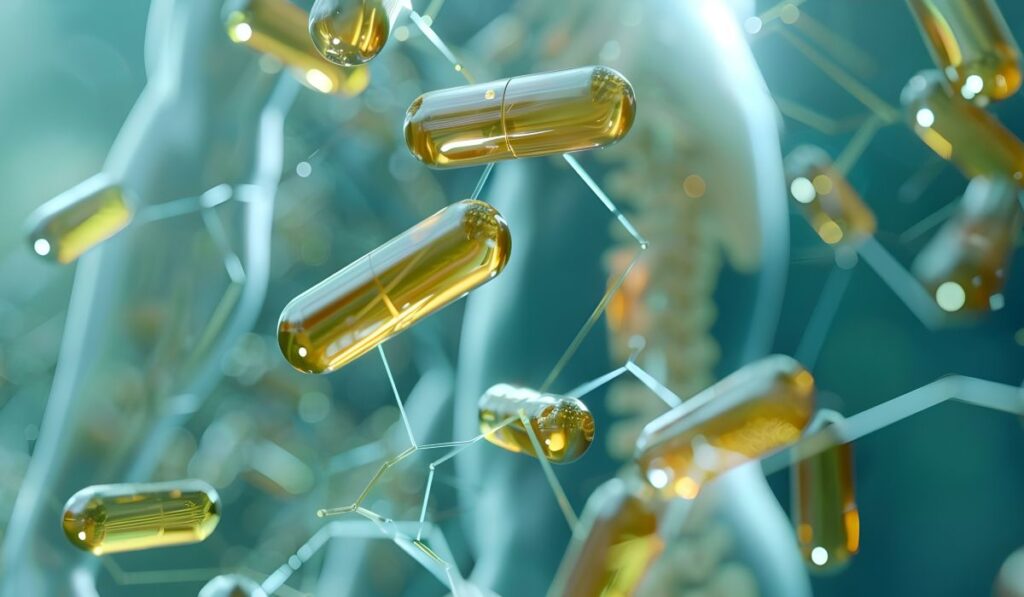What is Peptide Therapy? Does It Work, and Is It Safe?

Peptide therapy is an innovative treatment approach using peptides to positively influence a range of bodily functions and enhance overall health. Peptides, which are short chains of amino acids, serve as essential building blocks of proteins and are involved in numerous physiological processes, such as hormone regulation, neurotransmitter activity, and immune responses. As a result, peptide therapy has gained significant interest among individuals seeking to boost athletic performance, manage chronic pain, and improve general wellness.
In this article, we answer the question, “What is peptide therapy?” while exploring its mechanisms, potential benefits, and safety considerations.
What is Peptide Therapy?
Peptide therapy refers to the administration of specific peptides to modulate various physiological functions in the body. Peptides are naturally occurring molecules composed of amino acids, and they play a critical role in regulating many bodily functions, including metabolism, immunity, and cell communication. Peptides can either stimulate or inhibit enzymes, receptors, or other proteins in the body.
Peptide therapy typically involves the use of synthetic peptides or analogs, which are administered through various methods such as oral intake, injections, or topical application, depending on the desired effect. This therapy is customized to target specific health outcomes and can address issues ranging from hormone regulation to improved skin health.
Types of Peptides Used in Therapy
Several types of peptides are commonly used in peptide therapy, including:
- Thymosin Alpha-1: Known for its immune-boosting properties, this peptide helps in the treatment of autoimmune diseases and infections.
- Growth Hormone-Releasing Peptides (GHRP): These peptides stimulate the release of growth hormones, aiding muscle growth, tissue repair, and metabolism.
- Melanocyte-Stimulating Hormone Peptides: Known for treating skin conditions like vitiligo, these peptides can also promote tanning and improve skin health.


How Does Peptide Therapy Work?
Peptides act as messengers, binding to specific receptors in cells to initiate or block various processes. Through this mechanism, peptide therapy can support the body in achieving specific health benefits. For example, growth hormone-releasing peptides work by increasing the natural release of growth hormones, which in turn promotes muscle growth, aids in weight management, and speeds up recovery.
Peptides are also utilized for their anti-inflammatory and tissue-repairing properties, making them useful in managing chronic pain, autoimmune disorders, and metabolic conditions. When used correctly, peptide therapy offers a targeted approach to health optimization.
Benefits of Peptide Therapy
Though more research is needed, preliminary studies and clinical applications suggest several potential benefits of peptide therapy, including:
- Enhanced Athletic Performance: Peptides that stimulate muscle growth and improve energy levels are popular among athletes and fitness enthusiasts.
- Increased Energy and Endurance: Certain peptides can improve stamina and reduce fatigue.
- Anti-Aging Effects: Peptide therapy may enhance collagen production, resulting in healthier skin and reduced signs of aging.
- Improved Cognitive Function: Some peptides support brain health, potentially improving memory and focus.
- Strengthened Immune System: Immune-modulating peptides can bolster the body’s natural defenses.
- Accelerated Healing: Peptides involved in tissue repair and inflammation reduction may help in faster recovery from injuries and surgeries.
Peptide therapy has shown promising results in managing chronic pain and reducing inflammation, with applications in treating autoimmune conditions like rheumatoid arthritis and metabolic disorders, such as obesity and diabetes.


Key Considerations Before Starting Peptide Therapy
Before beginning peptide therapy, it’s essential to consult a healthcare provider who is experienced in peptide therapy. They can help determine if this treatment is suitable for your health needs, ensure proper dosing, and monitor for any adverse effects.
Peptide therapy should also be complemented by a balanced lifestyle, including proper nutrition, regular exercise, and adequate rest.
Conclusion
Peptide therapy is an emerging treatment that target specific physiological functions and enhance health and wellness. With applications ranging from improved athletic performance to anti-aging benefits, it offers a versatile approach to health optimization.
While research is still ongoing to fully establish its effectiveness and long-term safety, initial findings are promising. If you’re interested in peptide therapy, consulting with a healthcare provider can help you assess if this treatment is a suitable addition to your wellness plan.
Frequently Asked Questions (FAQs)
How is peptide therapy administered?
Peptides can be administered in several ways, including injections, oral capsules, and topical creams. The method depends on the specific peptide and the intended effect.
What’s the difference between peptide therapy and traditional hormone replacement?
Unlike traditional hormone replacement therapy, which directly introduces hormones, peptide therapy uses peptides to stimulate or regulate the body’s natural hormone production, making it a potentially safer and more targeted approach.
How long does it take for peptide therapy to work?
The onset of effects varies depending on the specific peptide, the condition being treated, and individual factors. Some people experience noticeable improvements within days or weeks, while others may require a longer duration.
Is peptide therapy covered by insurance?
Insurance coverage for peptide therapy varies depending on the insurance provider and the specific condition being treated. It’s essential to check with your insurance company to determine coverage.
Looking to optimize your energy and performance? Our energy boost IV drip delivers essential B-vitamins and nutrients directly to your bloodstream. For athletes and active individuals, our performance and recovery drip helps reduce muscle fatigue and accelerate recovery. Learn more about IV therapy or schedule your appointment.
